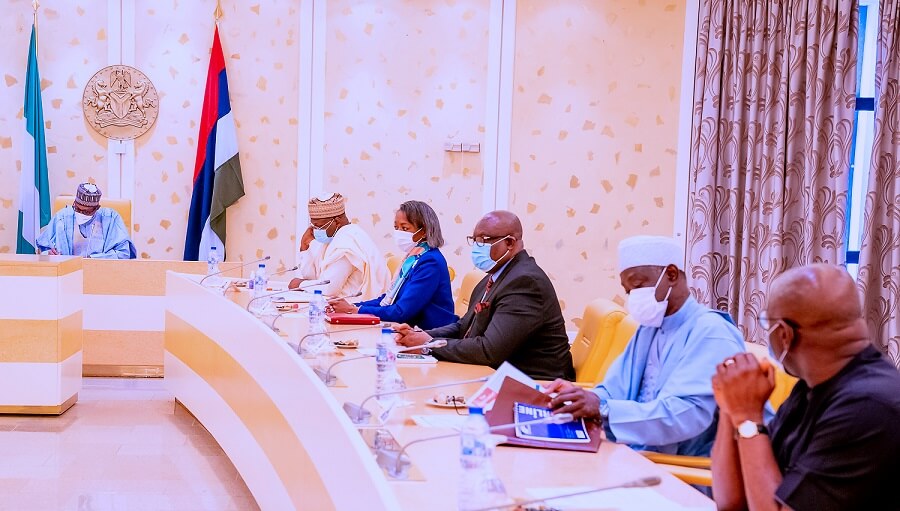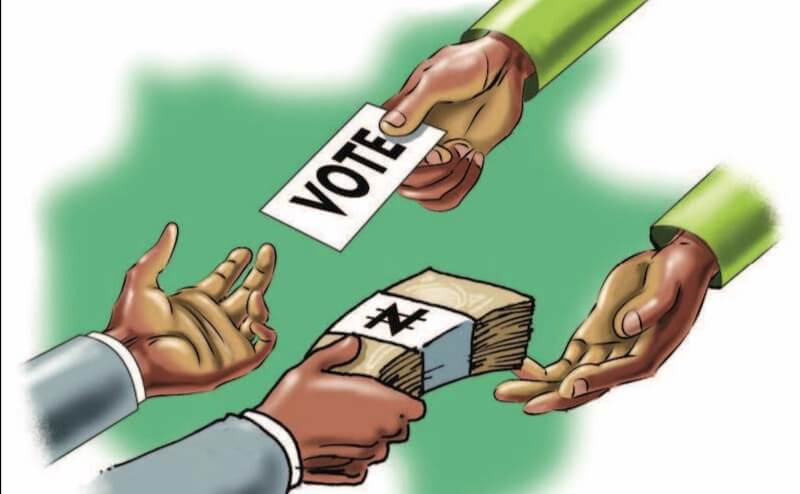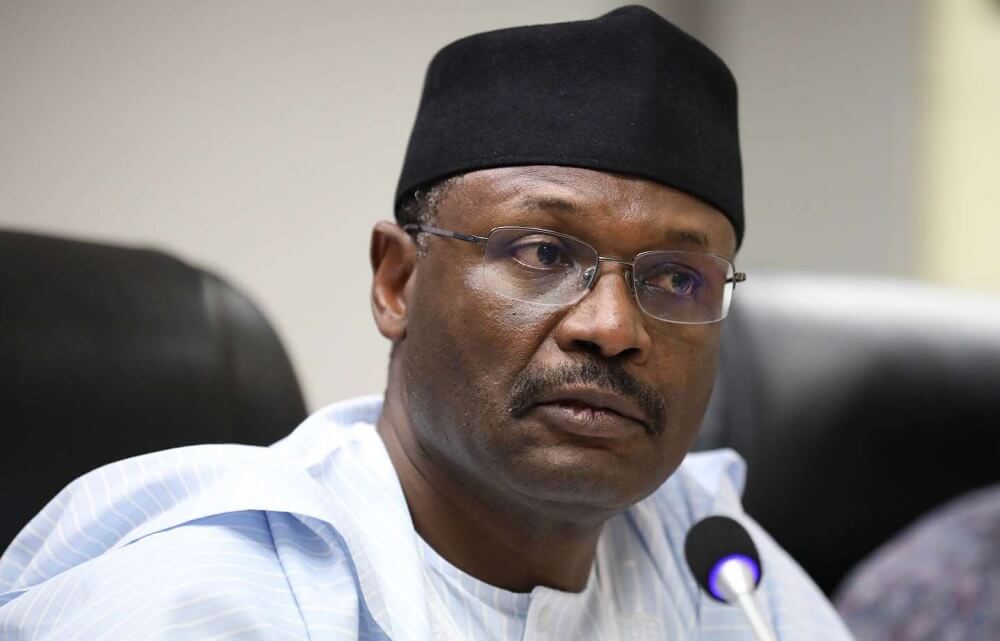Despite efforts of the Independent National Electoral Commission (INEC) to make the 2023 general election hitch-free, the commission has identified certain issues that still pose threat to the forthcoming polls.
Nigeria’s 2023 presidential and national assembly elections will be held on February 25 while the gubernatorial and state assembly elections are scheduled to take place fourteen days after on March 11.
Advertisement
The elections would significantly be different from past general polls due to the technological changes introduced to the electoral process by the Independent National Electoral Commission. The enactment of the 2022 Electoral Act on February 25, 2022 by President Muhammadu Buhari made it possible for INEC to deepen the use of technology with a view to removing challenges that hitherto plagued the Nigerian electoral process.
But while INEC has shown strong commitment to raising the bar from the standard set in previous elections, the commission still faces some uphill struggles that pose serious threat to the 2023 elections.
The INEC Chairman, Mahmood Yakubu, at different points had revealed some of the fears being entertained by the commission regarding the forthcoming elections. In its 2023 Election Project Plan released in May 2022, INEC highlighted more than 15 electoral threats facing the commission classified into “real” and “potential” treats.
The commission also identified internal and external threats it has faced since 2015, some of which it said it had “attempted to mitigate”. But among all the threats, Yakubu in May identified “insecurity, fake news and money politics” as most critical.
Advertisement
INSECURITY / ELECTORAL VIOLENCE
In the 2023 Election Project Plan, INEC mentioned ‘physical attack on INEC personnel’, ‘kidnapping of INEC personnel for ransom’, ‘arson attack on INEC offices and facilities,’ and ‘cyber-attacks on INEC website, servers, and database” among the security-related challenges that may affect to the smooth conduct of the 2023 election.
THE WHISTLER recalls that at the peak of arson attacks on the electoral umpire’s offices and facilities in 2021, Yakubu had led his team to President Buhari to lament what he called “frequent and systematic” attacks on the commission’s offices across the country.

Prior to that visit, Yakubu warned that the attacks “may undermine the commission’s capacity to organise elections and dent the nation’s electoral process” if nothing was done to stop them.
Advertisement
As of June 1, 2021, the commission had suffered 42 attacks on its facilities since the conduct of the 2019 general election.
About 1,149 persons including INEC staff and security personnel were also said have been killed during general elections held in 2011, 2015 and 2019.
To address some of the security challenges in 2023, INEC’s Election Project Plan recommends the “development of a comprehensive election security plan in collaboration with members of ICCES (Electoral Security: Interagency Consultative Committee on Election Security) based on an assessment of real and perceived threats in the electoral process to engender a conducive and secured electoral environment during the plan period.
“Deployment of appropriate measures and strategies to secure and protect INEC’s offices, facilities, and equipment nationwide to ensure that the Commission can continue to function and fulfil its mandate in case of any arson attack.”
FAKE NEWS
Another area of great concern to INEC is fake news and blackmail in the media by self-serving politicians.
Advertisement
During a conference on “Emerging Issues that will Shape the 2023 General Elections in Nigeria” organised by the Centre for Democracy and Development (CDD) and the Open Society Initiative for West Africa (OSIWA) in May, the chairman of INEC identified fake news as one of the biggest challenges confronting it in the pre-election, election and postelection periods.
THE WHISTLER reported how the electoral umpire in April shut down a false claim by the presidential candidate of the ruling All Progressives Congress (APC), Asiwaju Bola Tinubu, that Permanent Voter Cards (PVC) have an expiry date.
VOTE BUYING/MONEY POLITICS
Vote-buying is one of the electoral offences that the National Electoral Offences Commission and Tribunal Bill seeks to address when passed by the National Assembly and singed by the president.
If enacted, the law will take the burden of prosecuting electoral offenders off INEC and allow the body focus more on conducting elections.

In its 2023 election project plan, the electoral umpire said “PVC harvesting by political parties” and “reprisal attacks on voters (after elections)” are issues that needed to be addressed through swift arrest and prosecution of vote buyers and voter sellers.
OTHER CHELLENGES:
INTIMIDATION Of VOTERS, OPPONENTS
Closely related to the insecurity challenge, intimidation of voters and political opponents and snatching and/or destruction of voter registration materials as well as physical attacks on security personnel are among potential threats foreseen by INEC.
Other fears expressed include disruption of party meetings, primaries, conventions, campaigns, and candidate nomination process; disruption of collation and announcement of results as well as diversion of sensitive election materials and forgery of result sheets.
With the introduction of the Bimodal Voter Accreditation System (BVAS) that makes it difficult to rig the elections, politicians and their agents may resort to these means to influence outcome of polls.
They could be worsened by compromising security personnel on electoral duty, misuse of security personnel by political office holders, misuse and illegal deployment of security agencies to carry out unlawful orders, destruction of election litigation evidence (after elections).
LACKADAISICAL ATTITUDE OF STAFF MEMBERS
Among the internal threats identified are “deficit in the knowledge, skills and qualification of implementing staff, inadequate inter-departmental synergy, cooperation and coordination, as well as lackadaisical attitude of some staff members”.
ATTEMPTS TO COMPROMISE INEC’S INTEGRITY
Apart from the internal risks, INEC opened up about “several external threats, including efforts at eroding the powers of the Commission to undertake its constitutional and regulatory functions.”
This, according to the commission, include “attempts at influencing the composition of the Commission and at undermining the processes for determining electoral outcomes based on legitimate votes cast, lack of internal party democracy, undemocratic conduct of the political class, challenge of election security and the scourge of the COVID -19 Pandemic.
“Indeed, managing the subtle and blatant external attempts to compromise the integrity of the Commission, contending with the lack of internal party democracy and associated acts of impunity, and securing the electoral environment by professional and non-partisan security personnel on election duties and strict adherence to the COVID -19 health advisories remain major threats in the electoral process.”



